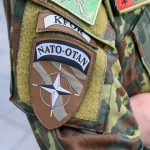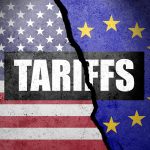President Donald Trump issued a stark warning to Russian President Vladimir Putin on Wednesday, stating that “very severe consequences” will follow if Putin does not agree to halt the war in Ukraine. The declaration came just days before the highly anticipated summit between the two leaders in Anchorage, Alaska.
Trump’s remarks followed a virtual meeting with European and Ukrainian leaders, where calls for a ceasefire and protection of Ukraine’s sovereignty dominated the conversation. The stakes for the summit are high, with European allies expressing deep concerns over any peace deal excluding Ukraine or favoring Russian territorial gains.
Summit Pressure Builds Ahead of Anchorage Talks
Speaking to reporters after the Kennedy Center Honors announcement, Trump responded to questions about the upcoming summit by stating, “If Putin doesn’t agree to stop the war, there will be very severe consequences.” He provided no further details but reaffirmed that a ceasefire would be a key focus of the Friday meeting.
Trump’s comments followed consultations with several European leaders and Ukrainian President Volodymyr Zelenskyy. The leaders pressed for unity ahead of the summit, ensuring the U.S. would push for an immediate end to hostilities.
Zelenskyy: Putin Is Bluffing and Avoiding Peace
Ukrainian President Volodymyr Zelenskyy joined the virtual meeting from Berlin, where he reiterated his doubts about Putin’s sincerity. “Putin is bluffing,” Zelenskyy warned. “He is trying to apply pressure on all sectors of the Ukrainian front to show he’s capable of occupying all of Ukraine.”
Zelenskyy rejected any claims that sanctions are ineffective. “In reality, sanctions are very helpful and are hitting Russia’s war economy hard,” he added, urging allies not to ease pressure on Moscow.
Merz and Macron Echo the Call for a Ceasefire
German Chancellor Friedrich Merz, who organized the meeting, emphasized that “fundamental European and Ukrainian security interests must be protected.” He stated, “A ceasefire must come at the beginning of negotiations,” echoing the European stance that Kyiv must be involved in any future talks.
French President Emmanuel Macron echoed the sentiment, saying Trump “was very clear” that the U.S. seeks a ceasefire. He also mentioned that Trump is considering a “future trilateral meeting” involving Putin, Zelenskyy, and himself, possibly to be hosted in a neutral European country.
Europe’s Fears of Concessions and Expansionism
Despite Trump’s commitment to explore a ceasefire, European leaders remain wary. Trump has previously suggested that Ukraine may need to surrender some Russian-held territory — a position that alarms both Kyiv and its allies.
European leaders fear that excluding Ukraine from talks could allow Putin to secure concessions that would embolden further aggression. “If there is no movement on the Russian side in Alaska,” Merz warned, “then the United States and the Europeans should and must increase the pressure.”
Zelenskyy Firm on Ukrainian Territory
Zelenskyy made clear on Tuesday that territorial concessions are not on the table. “We will not give up any territory we control. That would be unconstitutional and only a prelude to a future Russian invasion,” he asserted.
He also criticized the diplomatic efforts so far, stating that U.S.-led talks have ignored key Ukrainian demands, including solid security guarantees and permanent involvement in peace negotiations.
Trump’s Shift on NATO and Europe’s Burden
Trump’s administration has already removed Ukraine’s potential NATO membership from the discussion — a move widely seen as a concession to Putin. This has placed the burden of European security more squarely on the EU and Kyiv, raising alarms among leaders who fear a broader Russian threat if Ukraine falls.
Senior EU officials speculate that Trump may be more interested in broader U.S.-Russia relations and economic ties than in achieving lasting peace in Eastern Europe.
Russia’s Advance in Donbas Heightens Urgency
Meanwhile, Russian forces continue their push in eastern Ukraine, with the strategic city of Pokrovsk becoming a key target. Capturing Pokrovsk could hand Moscow a significant victory before the summit and jeopardize Ukrainian supply lines.
Analysts say this could shift battlefield momentum and influence the diplomatic tone of the Alaska summit. Ukraine’s ability to hold the line in Donbas is being closely watched by both sides of the conflict.
A Turning Point or a Missed Opportunity?
As anticipation builds, Friday’s summit could mark a turning point in the war — or further entrench the divisions. While Trump promises to test Putin’s intentions, his mixed messages about Ukraine’s role and Russia’s demands have left many allies anxious.
Whether this meeting leads to “very severe consequences” or a new round of negotiations depends heavily on what unfolds behind closed doors in Anchorage.
The World Watches for Answers
The global community is watching the Alaska summit closely, hoping it offers a path to peace. As President Zelenskyy stated, “Putin definitely does not want peace,” but the pressure is mounting from all sides. With lives, borders, and international order at stake, the outcome of Trump’s encounter with Putin could shape the next phase of the conflict in Ukraine and beyond.





